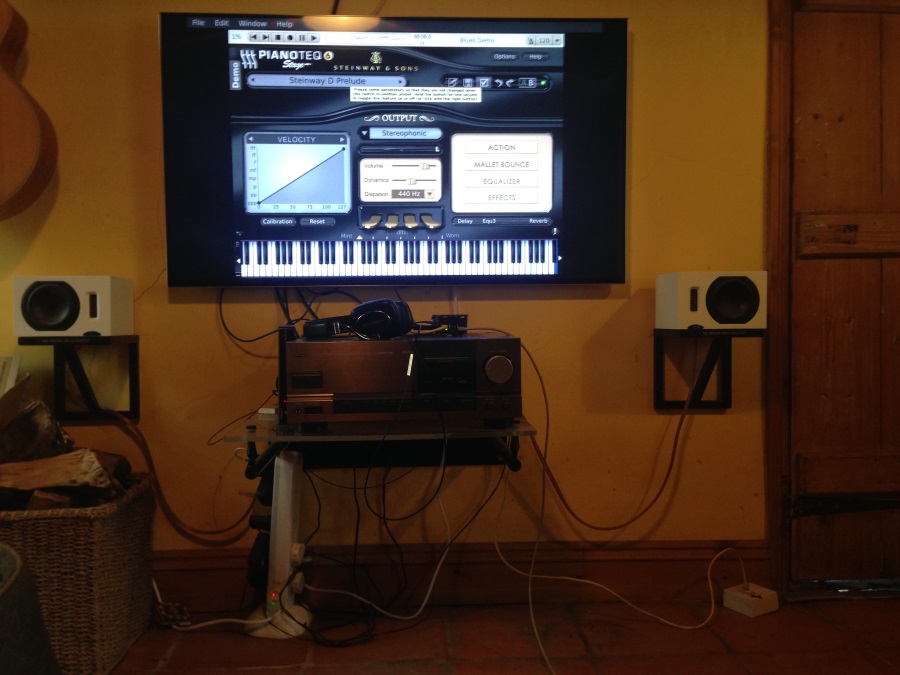Hi Jake,
of course - here are some pictures (maybe I have time to make a small video at next weekend):
http://www.parasitstudio.de/Raspi-Piano..._Kawai.jpg
Complete system running. As MIDI keyboard I am using my Kawai-MP5 (which sounds also as great as Pianoteq :-) ).
http://www.parasitstudio.de/Raspi-Piano...s_Case.jpg
You need an RPi(3) and a soundcard. I am using a Hifiberry DAC+ (I added a 40pin header for using this hardware also in Zynthian). There are several sound cards which can also be used instead of the Hifiberry. For Zynthian (http://zynthian.org) we have used the following cards until now:
HifiBerry DAC+
HifiBerry DAC+ light
HifiBerry Digi
HifiBerry Amp
AudioInjector
IQAudio DAC
IQAudio DAC+
IQAudio Digi
PiSound
JustBoom DAC
JustBoom Digi
http://www.parasitstudio.de/Raspi-Piano..._Touch.jpg
You can use a HDMI display (this one: Waveshare 10.1" capacitive touch display) or use a "normal" monitor and a mouse. Waveshare has also smaller displays (e.g. 7"). If you plan to build a Pianoteq-Piano (I think I will do this) you should use a capacitive display - they are more precise than the resistance ones. 7" should also work. The touch is connected via USB and the Rapsi thinks it is a mouse.
Currently the screen dimensions are (maybe) locked at 1280x800 but this can also be changed. If there are some Pinoteq users interested in, I can try to add a setup sequence for selecting the soundcard and setting the screen size. Let's see :-)
There is also the possibility to add DIN-MIDI-Input with not much hardware. Also a integration into Zynthian as seperate engine may be possible... we will see...
I will try to get a Fatar keyboard and some electronic to put everything into a selfmade wooden case as piano - sometimes :-)
Regards, Holger
Last edited by C0d3man (15-01-2018 20:01)
